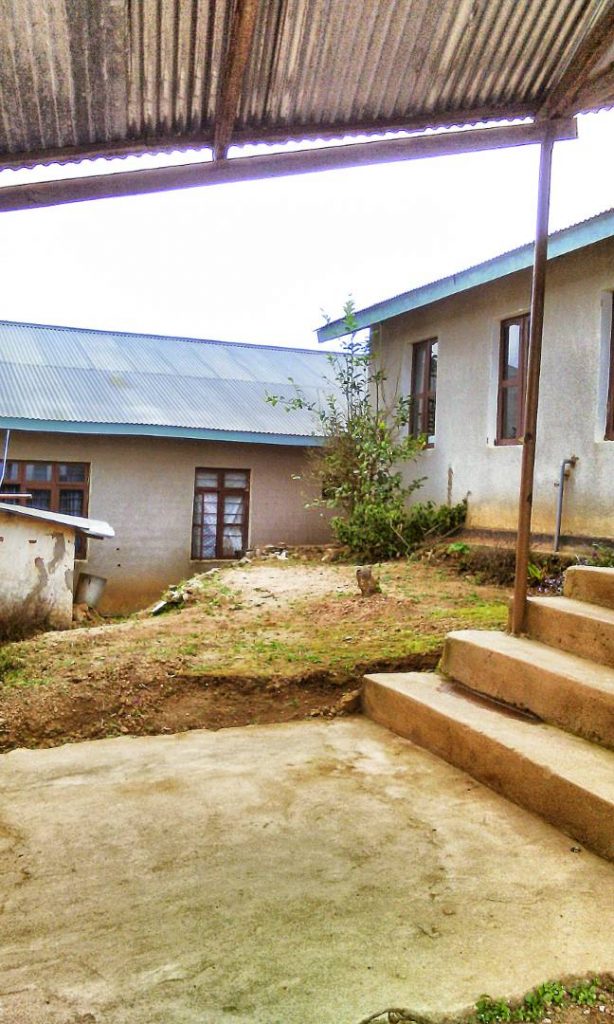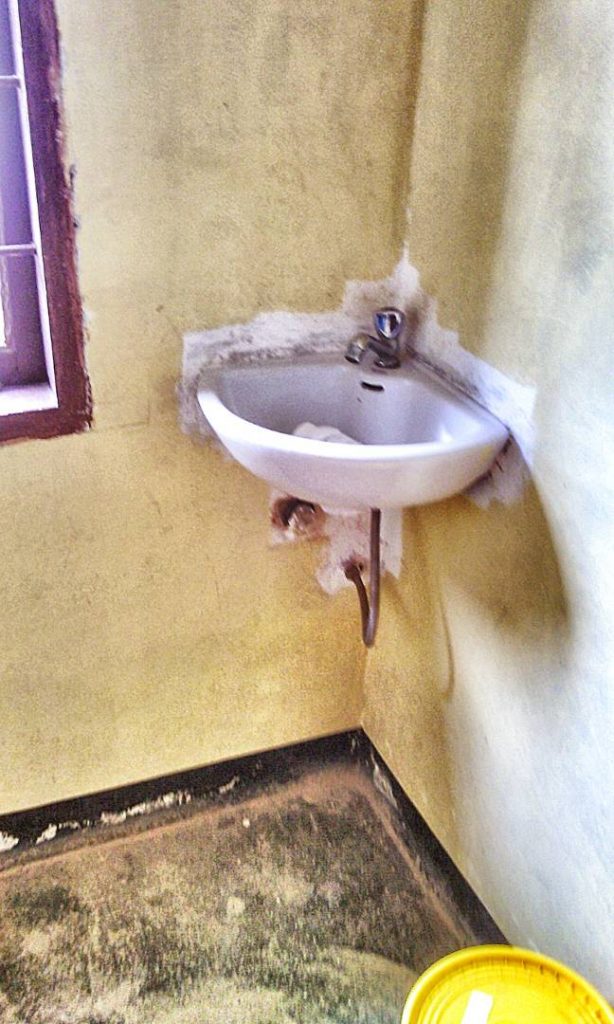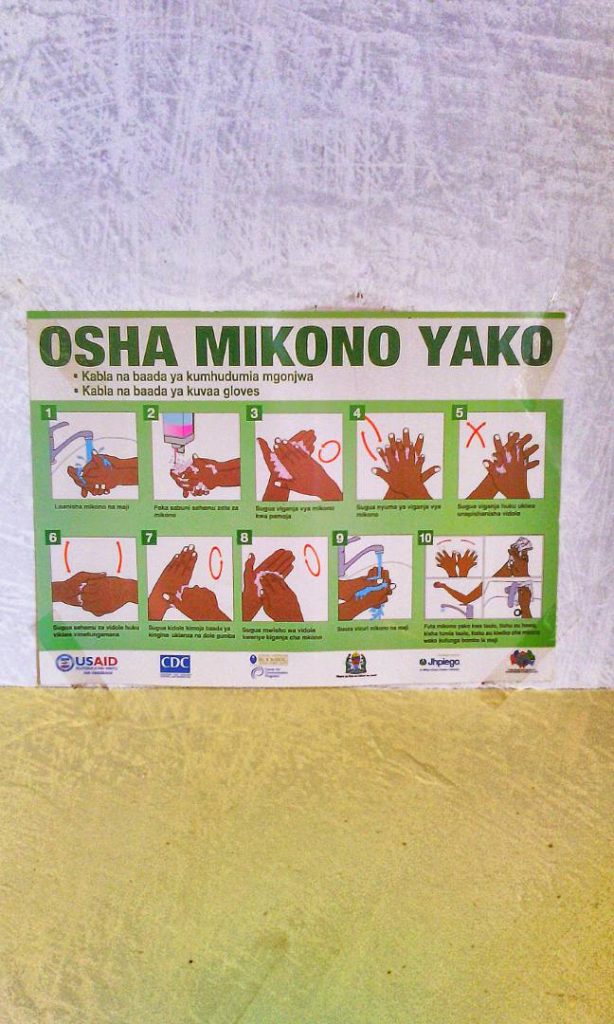This project is made possible through the partnership of WATER CHARITY and the National Peace Corps Association. ![]()
Location of Project
Mtae, Lushoto District, Tanga Region, Tanzania
 Description of Project Community
Description of Project Community
Mtae is a gorgeous rural ward village situated in the Usambara mountains about three hours away from Lushoto Town. Within Mtae are three sub-villages: Mtae Center with a population of about 4,500 people, Mpanga containing about 2,550 people and Mtii with a population of around 2,500 people. The ‘zahanati’ or health center is composed of a clinic and dispensary, and serves all three sub-villages:
Description of Problem
In Tanzania, water availability is a severe issue. Many villages especially in rural areas do not have easy access to water and walk miles in to the nearest river or lake in order to fill only two buckets of water. The lack of water results in unsanitary living situations, which in turn can causes diseases to arise and spread easily between people. The most common diseases resulting from lack of water include diarrheal diseases and common colds. Also because of the lack of sanitation, blood and fecal matter are easily transferred from person to person and animal to person.
The current main water source for the people of Mtae is a stream located about 45 minutes or 1.5 km away from the village and clinic. Typically, villagers have to walk the 45 minutes to carry only 2 or 3, 20 liter buckets of water to their house. There are about 5 communal spigots located throughout the village that are also connected to this stream. However, because the water system was poorly constructed, it is more common for water not to be avilable through these spigots and this causes issues for the people of Mtae and the staff at the clinic to have reliable and constant access to water.
Each day the dispensary sees between 75-300 people, not including those coming for clinic days such as the clinic for pregnant women (Mondays and Wednesdays), family planning (Tuesdays), and the very crowded Children’s Clinic (Fridays). Each day the four nurses and one doctor treat close to 300 people dealing with ailments from minor surgeries, flu-like symptoms, various injections and high blood pressure to the more hands on bandage changing and blood and urine testing for HIV, syphilis and malaria. HIV is a large problem in Mtae and villagers especially pregnant women and their husbands are required to get tested when they visit the clinic.
During the day, there is little to no water. If a patient is bleeding profusely, the staff will wear gloves but because of the limited supplies, they otherwise typically do not wear them. In the dispensary, there are typically three 20-liter buckets of water that are used for hand washing. The clinic has already installed two sinks but there is no water running through them. Currently, the lack of water currently available makes hand washing and proper sanitation of supplies a serious issue at the health center.
Detailed Project Description
The solution to combat the lack of water availability and reduce the spread of contagious disease, germs and blood borne pathogens is to install a 5,000-liter plastic water tank at the health center and connect it to 2 main sinks inside the center and an outside spigot, and connect a gutter system to catch rainfall.
 The water supply will be used solely for the clinic and dispensary so that the doctor, nurses and patients will be free to wash their hands as often needed, the medical supplies will be properly cleaned using soap and sanitized by boiling, and clean water will be available for patients to drink if they are sick, taking medication or dehydrated, all without fear of water shortage.
The water supply will be used solely for the clinic and dispensary so that the doctor, nurses and patients will be free to wash their hands as often needed, the medical supplies will be properly cleaned using soap and sanitized by boiling, and clean water will be available for patients to drink if they are sick, taking medication or dehydrated, all without fear of water shortage.
The tank and all of the supplies including pipes, valves and gutters are readily available and will be purchased in Lushoto Town, which is the closest large town to Mtae. The supplies will all be transported to Mtae village by bus, van or pickup truck.
The tank will sit upon a cement stand which will be about 2 feet tall and 7 feet wide. The gutters will be connected to the roof of the clinic and dispensary.
The average rainfall per year in Mtae is about 1,200-1,400 mm and right now July-September, it is rainy season so enough water will be caught.
The cement stand will be built by a carpenter located in the village. The gutters, tank and sinks will be constructed by a plumber who is also a member of the water committee in Mtae.
The community is very motivated and will contribute a little more than 25% of the cost. Their contribution consists of travel fees for the supplies, the majority of the cost for the plumber, and they have bought the two porcelain sinks and paid for a carpenter to install them within the dispensary.
Also, the water committee of Mtae has agreed to do free hand washing and safe drinking water lessons to the staff and the villagers at the clinic and to follow up to make sure these practices are being enforced. All drinking water at the clinic will be boiled for sterilization.
The water committee has also agreed to take responsibility for the maintenance of the tank and gutters after the completion of the project. Community members have agreed to volunteer to transport materials for this project to and from the vehicles to the clinic and dispensary.
 Water Charity funds will be used to purchase the 5,000 plastic liter water tank and all of the supplies necessary to connect the tank to the sinks and gutter system including pipes, gutters, connectors and valves, the bags of cement for the stand, the carpenter to build and secure the stand and the supplies needed for the metal spigot that will service the clinic and dispensary.
Water Charity funds will be used to purchase the 5,000 plastic liter water tank and all of the supplies necessary to connect the tank to the sinks and gutter system including pipes, gutters, connectors and valves, the bags of cement for the stand, the carpenter to build and secure the stand and the supplies needed for the metal spigot that will service the clinic and dispensary.
Community Organization
The Water Committee of Mtae is helping to organize the construction and maintenance of the water tank.
Number of Beneficiaries
9,592 women, men and children of the village, plus people passing through.
Peace Corps Volunteer Directing the Project
Mia Young
Monitoring & Maintenance
The water committee of Mtae will be responsible for monitoring and any maintenance of the water tank and sanitation practices.
Comments
The project will provide the clinic with enough water for continuous use year-round.
This project is a part of our ongoing East Africa Water & Sanitation Program.
This project has been fully funded by an anonymous donor. Still, you can donate to this project, and all further funds will go to helping start more projects in the region, and any follow-up projects we do here in Mtae.